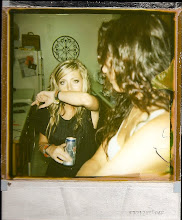- First off, the whole reason why Zanuck and Brown even won the screen rights to the novel was because they promised they could make the most successful film out of it (Daly, 84).
- Benchley's (the author of the book) publishing company, Doubleday, had him go on talk shows and used an enormous amount of television advertising in order to sell the book (Daly, 84).
- "Universal began promoting the filmin May 1973, two years before its release and a year before production was slated to begin" (Daly, 84).
- Universal and Zanuck and Brown sent out Press handouts aobout the film rights, casting plans, copies of the book were sent to people in the public's eye.
- Once the film actually started shooting, Universal gave paid vacations/visits to the location, tons of interviews with the cast and crew were taken, there was television coverage of production, and there was a tremendous amount of publicity about the difficulties that were occuring in production.
--What is “blind bidding”? Why did exhibitors object to the proposed blind bidding for Jaws? Why was the blind bidding for Jaws called off?
- Blind bidding is when exhibitors are allowed to make a bid on up to three films a year before they are screened/sneak-previewed. But in order to be able to make a blind bidding the exhibitor is to in no way have seen a sneak preview of film, they have to have blind faith in the producers, directors, stars, the story, etc.
- Many exhibitors objected because Universal had so much money riding on Jaws that they enforced specific bid letters that entailed the exhibitors having to agree to a deal in which they had to contribute a percentage of their profits from the film, depending on how successful it was, to the national television advertising campaign. But what was so scary about this specific agreement was that there was no telling whether the film would be a flop or not, so there was no telling how much money they would be in debt and how much they would owe to Universal.
- It was considered, by Universal, "a surcharge on the exhibitor for the privilege of running Jaws" (Daly, 89).
- The costs they would have to pay were up in the air, depending on their 'local earnings,' so many thought that it was an unheard of policy for a film that no one had seen, and couldn't base success on the book alone.
- But Universal "set up a series of preview screenings across the country so exhibitors could see Jaws" (Daly, 91). But in doing this, many of the exhibitors who attended these previews were later disabled from the running the blind bidding, since they had seen some of the film. So all previous biddings for the film were made obsolete, and the bidding started over again, open for all exhibitors, but it was not a blind bidding anymore.

1 comment:
Good job. Be sure to look over the Kramer article, and use the blog to ask questions as well as answer the posted questions.
Post a Comment